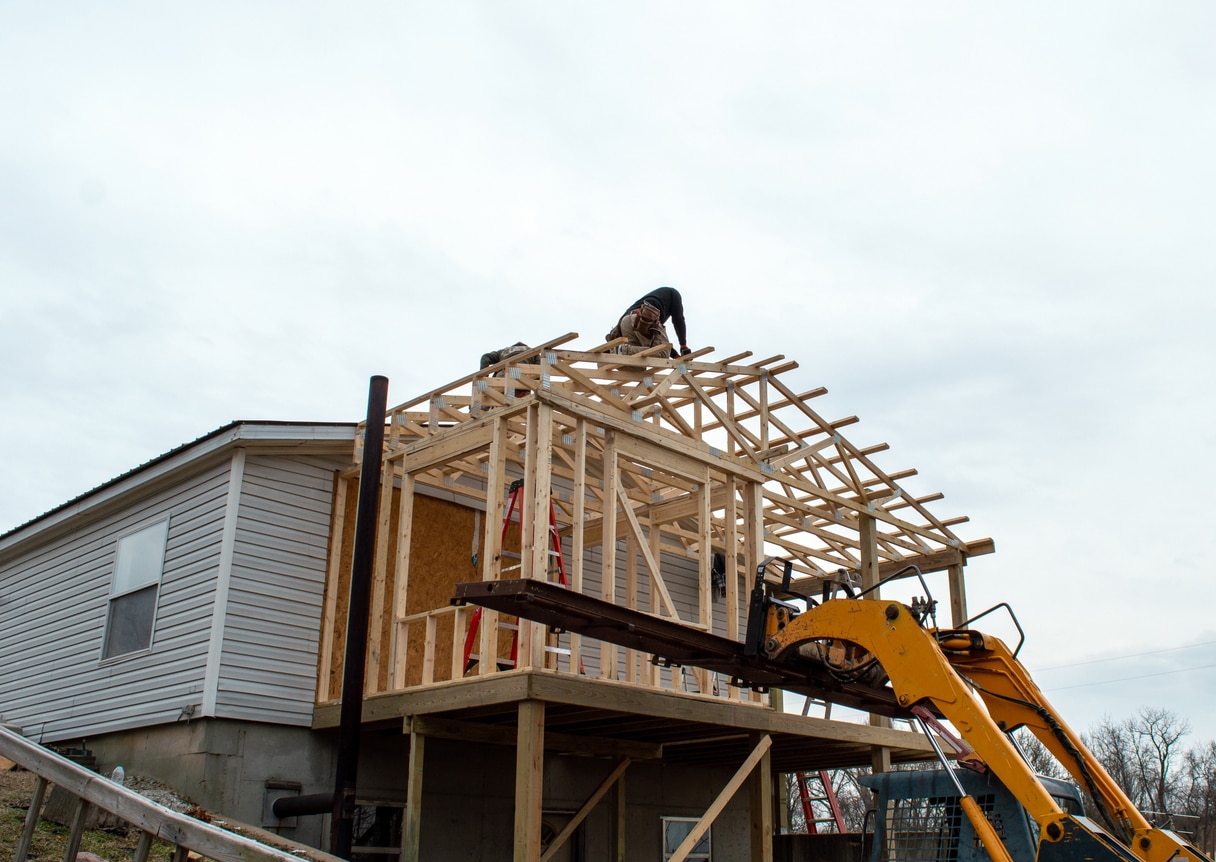Home Renovation vs. Home Remodeling: What's the Difference?

Major changes to your home can mean a major investment. So when you invite someone to tear out your kitchen counters or knock down your living room wall, you need to be sure you understand one another.
Consider this question: What’s the difference between a home renovation and a home remodel?
Those terms may mean one thing to you, and something else to your contractor.
Clarity about every aspect of a home improvement project means work you’ll be happy with. It also allows you to define your budget and secure the funding you need.
One way to start is checking that you and your contractor are using the same vocabulary with the same definitions. We talked to two renovation and remodeling professionals to learn more about terminology and how to talk about your big project. What we learned was surprising.

|
$1,000-50,000
Loan Amount
|
8.49-35.99%
APR
|
3–7 years
Terms
|
560
Minimum Credit Score
|
Disclaimer
Personal loans made through Upgrade feature Annual Percentage Rates (APRs) of 8.49%-35.99%. All personal loans have a 1.85% to 9.99% origination fee, which is deducted from the loan proceeds. Lowest rates require Autopay and paying off a portion of existing debt directly. Loans feature repayment terms of 24 to 84 months. For example, if you receive a $10,000 loan with a 36-month term and a 17.59% APR (which includes a 13.94% yearly interest rate and a 5% one-time origination fee), you would receive $9,500 in your account and would have a required monthly payment of $341.48. Over the life of the loan, your payments would total $12,293.46. The APR on your loan may be higher or lower and your loan offers may not have multiple term lengths available. Actual rate depends on credit score, credit usage history, loan term, and other factors. Late payments or subsequent charges and fees may increase the cost of your fixed rate loan. There is no fee or penalty for repaying a loan early. Personal loans issued by Upgrade's bank partners. Information on Upgrade's bank partners can be found at https://www.upgrade.com/bank-partners/.
So, what’s the difference between remodeling and renovating?
In search of a simple, uniform definition, we reached out to the pros. We learned that the answers aren’t as cut-and-dried as we’d anticipated.
It turns out there are no official legal definitions for the terms “home renovation” and “home remodel.” Because of that, the terms are open to interpretation.
Jay Sander of Maryland Contractors in Baltimore had a straight-to-the-point answer. “Remodeling involves structural changes or changing the layout of a space by adding new rooms or moving walls. Renovation is cheaper and less disruptive, usually completed within a few weeks.”
Joseph Patrick of Lamont Bros. Design & Construction in Oregon has over 20 years in construction. He started in HVAC and handyman work, expanding his range over time. He and his brother now own a company with over 40 employees and spend most of their time on design build remodeling.
“Terminology for construction tends to vary depending on geography,” says Patrick, who has a different take on the renovating vs. remodeling question. “When somebody talks about a remodel, most of the time they are talking about something on the smaller end of the spectrum. When they talk about a renovation, that’s a larger project.”
These definitions are opposites. It turns out that even the experts disagree on what makes a remodeling job and what falls under the heading of renovation.
So, how can you be sure you and your contractor understand one another? Talk about the specifics of the project.
Is your project a renovation or a remodel?
Because our experts are not in agreement on the definitions of renovation versus remodel, it’s best to talk to your contractor in specific terms. The title doesn’t matter as much as what will happen during the process. Here are a few suggestions of specific questions to ask and concerns to address.
What is the scope and purpose of the project?
In Patrick’s market, the terms for home improvement projects are more granular than just remodel vs renovation. “If you tell somebody you want a ‘kitchen refresh,’ they know what you mean,” he says. This is typically a project that will involve lighter changes like changing cabinet doors.
“Renovations” may mean a smaller project in other areas of the home, as well. A roof renovation, for instance, can refer to making repairs to a roof that is still structurally sound. This will be less expensive and less time consuming than a full roof replacement.
How long will a renovation or remodel project take?
The scope of the project will, of course, affect your timeline.
Another term used in Patrick’s market is “pull and replace.” He gives the example of a small versus large project in a bathroom. “A refresh where we’re doing pieces but not the full thing? That’s probably a two to three week project. A full custom remodel or renovation, you’re talking about six weeks plus.”
He goes on to say that the specifics of the job will govern how long it will take and how expensive it will be. “Are we moving walls? Are there load-bearing components?” This means a longer process.
How much does it cost?
Sander agrees that the cost will depend on the scope. “Remodeling requires extensive work; it is expensive, probably around $50,000 for a kitchen remodel. Renovations are less disruptive and cheaper, costing between $10,000 and $15,000.”
If you’re doing a full renovation of a house, the scope is, in the end, defined by your budget. A fixer-upper may start with some new kitchen cabinetry, but end with a full HVAC replacement and a brand new fence.
What’s the ROI of a home renovation or remodeling project?
As a rule, you will not get back your full investment on a renovation or remodeling project. For instance, the ROI of adding a primary suite to your home typically runs only about 45% of your costs. A new kitchen usually only pays back 55% of its cost.
Smaller renovations, however, tend to provide more value. According to Forbes, you can expect to recoup 105% of the cost of repainting your walls. A garage door replacement can bring returns of around 95% when you sell.
Why? Because buyers tend to focus on small details. So, new bathroom fixtures are more likely to pay off than a full bathroom. Because of this, it’s important to focus on what improves your enjoyment of the home over what you think an imagined future owner might prefer instead.
“Consider [both] your long-term goals and how remodeling and renovations may affect your home’s resale value,” says Sander.
Financing your home remodel or renovation
No matter what your project, you need to find the funds to pay for it. Start with an idea of your overall budget. Construction company websites like Lamont Bros. Design & Construction often have pricing portals you can use to get a ballpark figure. Get quotes from a couple of contractors in your area to learn more about specifics.
Tip
Once you have a general idea, you can start looking at home remodeling finance options right here on AcornFinance.com. Compare offers from multiple lenders and learn not just how much you can borrow, but also how much you’ll spend every month you have the loan.
Best of all, you can take a look at potential offers even if you are early in the planning process. A pre-approval can give you an idea of offers you are likely to qualify for, all without affecting your credit.
Whether you are calling it a remodel or renovation, you need a clear idea of what you want and how to make it happen.
A trusted contractor can go over the specifics of the improvements you want, and give you an idea of how much time and money are involved. We can help you get the funds to make it a reality.
Comparing options on Acorn Finance? See if you prequalify for a personal loan without impacting your credit score. Just answer a few questions to get personalized rate estimates from multiple lenders.
